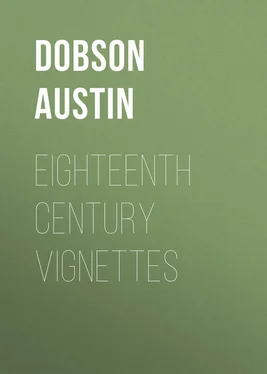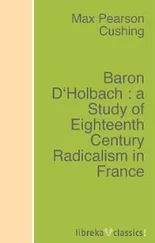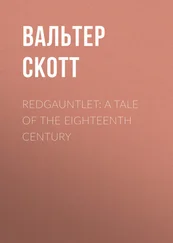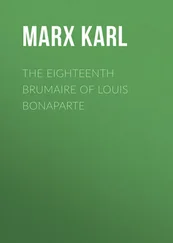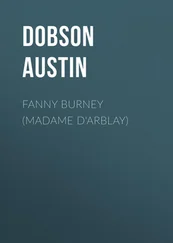Austin Dobson - Eighteenth Century Vignettes
Здесь есть возможность читать онлайн «Austin Dobson - Eighteenth Century Vignettes» — ознакомительный отрывок электронной книги совершенно бесплатно, а после прочтения отрывка купить полную версию. В некоторых случаях можно слушать аудио, скачать через торрент в формате fb2 и присутствует краткое содержание. Жанр: foreign_antique, foreign_prose, на английском языке. Описание произведения, (предисловие) а так же отзывы посетителей доступны на портале библиотеки ЛибКат.
- Название:Eighteenth Century Vignettes
- Автор:
- Жанр:
- Год:неизвестен
- ISBN:нет данных
- Рейтинг книги:5 / 5. Голосов: 1
-
Избранное:Добавить в избранное
- Отзывы:
-
Ваша оценка:
- 100
- 1
- 2
- 3
- 4
- 5
Eighteenth Century Vignettes: краткое содержание, описание и аннотация
Предлагаем к чтению аннотацию, описание, краткое содержание или предисловие (зависит от того, что написал сам автор книги «Eighteenth Century Vignettes»). Если вы не нашли необходимую информацию о книге — напишите в комментариях, мы постараемся отыскать её.
Eighteenth Century Vignettes — читать онлайн ознакомительный отрывок
Ниже представлен текст книги, разбитый по страницам. Система сохранения места последней прочитанной страницы, позволяет с удобством читать онлайн бесплатно книгу «Eighteenth Century Vignettes», без необходимости каждый раз заново искать на чём Вы остановились. Поставьте закладку, и сможете в любой момент перейти на страницу, на которой закончили чтение.
Интервал:
Закладка:
Upon one occasion she scandalized the court-usher soul of Horace Walpole by masquerading at St. James's in a costume of red flannel. As a rule, she carried her innovations triumphantly; but now and then she was forced to yield to a will more imperative than her own. Once the fantastic old King of Rath tore off her favourite white apron in the Pump Room, flinging it contemptuously among the 'waiting gentlewomen' in the hinder benches. 'None but abigails wore white aprons,' he declared; and the grande dame de par la monde made a virtue of necessity, and submitted. In her own entertainments, however, she seems to have been as despotic as Nash, insisting that people should come early and leave early, and declining to provide the profuse refreshments then expected. High-spirited and whimsical no doubt she was; but the stories told of her are probably exaggerated. Those who praise her, praise her unreservedly. Her character was unblemished. She was truthful; she was honest; she was not a flatterer. And she was certainly fearless, for she dared, even in the rudimentary epoch of the two-pronged fork, to rally the terrible Dean of St. Patrick's for that deplorable habit – so justly deprecated by the Historian of Snobs – of putting his knife in his mouth. When she saw any one 'administer the cold steel,' as Thackeray calls it, she would shriek out in affected terror lest they should do themselves a mischief. She seems, although they never really met after her girlhood, to have wholly subjugated Swift, whose final tone to her comes perilously close to that fulsome adulation which, in others, stirred his fiercest scorn. 'I will excuse your blots upon paper,' he says, writing to her after Gay death, 'because they are the only blots you ever did, or ever will make, in the whole course of your life.' Further on he refers 'to the universal, almost idolatrous esteem you have forced from every person in two kingdoms, who have the least regard for virtue.' It is her peculiar art, he tells her again, to bribe 'all wise and good men to be her flatterers.' Swift was no paragon; but the praise of Swift outweighs the sneers of Walpole.
She was the friend of men of letters – this capricious great lady, and they have judged her best. To Swift in particular it was an attraction that she loved and befriended his favourite Gay. The earlier part of the brief correspondence from which the above quotation is borrowed, shows the Duchess in her most amiable light; and it was with Gay that it originated. From the days of her marriage she had protected and petted that fat and feckless fabulist; she had championed him in the matter of his second ballad-opera in such a way as to procure her own exile from Court; and at the time she began to write to Swift, Gay was domiciled at the Duke's country house at Ambresbury, or Amesbury, near Salisbury, in Wiltshire. Gay begins by sending Swift the Duchess's 'services,' and by wishing on his own account that Swift could come to England, – could come to Amesbury. Swift replies with conventional acknowledgment of the civility of the lady, whom he had not seen since she was a girl. He hears an ill thing of her, he says' – that she is matre pulchrâ filia pulchrior , and he would be angry she should excel her mother (Jane Leveson Gower), who, of old, had long been his 'principal goddess.' In the letter that succeeds, the Duchess herself adds a postscript to confirm Gay's invitation. 'I would fain have you come,' she writes. 'I can't say you'll be welcome; for I don't know you, and perhaps I shall not like you; but if I do not (unless you are a very vain person), you shall know my thoughts as soon as I do myself.' No mode of address could have suited Swift's humour better; and part of his next epistle to Gay replies to her challenge in the true Swiftian style. He begins very low down on the page – 'as a mark of respect, like receiving her Grace at the bottom of the stairs.' He goes on with a protest for form's sake against the imperious manner of her advances; but he argues ingeniously that she must like him, since they are both unpopular with the Queen. If he comes, 'he will,' he adds, 'out of fear and prudence, appear as vain as he can, that he may not know her thoughts of him.' His closing sentences are in Malvolio's manner. 'This is your own direction, but it was needless. For Diogenes himself would be vain, to have received the honour of being one moment of his life in the thoughts of your grace.'
After this, les épées s'engagent . As to the correspondence that ensued, opinions differ widely. Warton discovered 'exquisite humour and pleasantry' in Swift's 'affected bluntness,' and compares him to Voiture, – to Waller writing to Sacharissa on her marriage. Later editors are less enthusiastic, regarding the whole series of letters as 'empty, laboured, and childish on both sides.' Each of these verdicts is extreme. Swift tempering candour by compliment, is an unusual but not an impossible spectacle; while the Duchess writes exactly as one would expect her to write with Swift's fast friend at her elbow. Gay, knowing that she will probably follow him, warns Swift playfully that she has her antipathies, – that she likes her own way, – that she is very frank, and that in any dispute he must be on her side. Thereupon her Grace takes up the pen herself:
'Write I must, particularly now, as I have an opportunity to indulge my predominant passion of contradiction. I do, in the first place, contradict most things Mr. Gay says of me, to deter you from coming here; which if you ever do, I hereby assure you, that, unless I like my own way better, you shall have yours; and in all disputes you shall convince me if you can. But, by what I see of you, this is not a misfortune, that will always happen; for I find you are a great mistaker. For example, you take prudence for imperiousness:'tis from this first that I determined not to like one, who is too giddy-headed for me to be certain whether or no I shall ever be acquainted with [him]. I have known people take great delight in building castles in the air; but I should choose to build friends upon a more solid foundation. I would fain know you; for I often hear more good likable things [of you] than 'tis possible any one can deserve. Pray, come, that I may find out something wrong; for I, and I believe most women, have an inconceivable pleasure to find out any faults, except their own. Mr. Cibber is made poet laureate. 3 3 'Harmonious Cibber entertains The Court with annual Birth-day Strains; Whence Gay was banish'd in Disgrace.' Swift, On Poetry: a Rhapsody, 1733.
I am, Sir, as much your humble servant as I can be to any person I don't know.
'C. Q.
'P.S. Mr. Gay is very peevish that I spell and write ill; but I don't care: for neither the pen nor I can do better. Besides, I think you have flattered me, and such people ought to be put to trouble.'
That this fashion of writing, so new to him, should not have captivated Swift, is impossible. He could not accept the invitation; but at least he could prolong the correspondence. In his next letter he enters upon preliminaries. He is old, dull, peevish, perverse, morose. Has she a clear voice? – and will she let him sit at her left hand, for his right ear is the better? Can the parson of the parish play at backgammon, and hold his tongue? Has she a good nurse among her women, in case he should fancy himself sick? How long will she maintain him and his equipage if he comes? A week or two later, in the form of another postscript to Gay, follows the reply of the Duchess:
'It was Mr. Gay's fault that I did not write sooner; which if I had, I should hope you would have been here by this time; for I have to tell you, all your articles are agreed to; and that I only love my own way, when I meet not with others whose ways I like better. I am in great hopes that I shall approve of yours; for to tell you the truth, I am at present a little tired of my own. I have not a clear or distinct voice, except when I am angry; but I am a very good nurse, when people don't fancy themselves sick. Mr. Gay knows this; and he knows too how to play at backgammon. Whether the parson of the parish can, I know not; but if he cannot hold his tongue, I can. Pray set out the first fair wind and stay with us as long as ever you please. I cannot name my fixed time, that I shall like to maintain you and your equipage; but if I don't happen to like you, I know I can so far govern my temper as to endure you for about five days. So come away directly; at all hazards you'd be allowed a good breathing time. I shall make no sort of respectful conclusions; for till I know you, I cannot tell what I am to you.'
Читать дальшеИнтервал:
Закладка:
Похожие книги на «Eighteenth Century Vignettes»
Представляем Вашему вниманию похожие книги на «Eighteenth Century Vignettes» списком для выбора. Мы отобрали схожую по названию и смыслу литературу в надежде предоставить читателям больше вариантов отыскать новые, интересные, ещё непрочитанные произведения.
Обсуждение, отзывы о книге «Eighteenth Century Vignettes» и просто собственные мнения читателей. Оставьте ваши комментарии, напишите, что Вы думаете о произведении, его смысле или главных героях. Укажите что конкретно понравилось, а что нет, и почему Вы так считаете.
